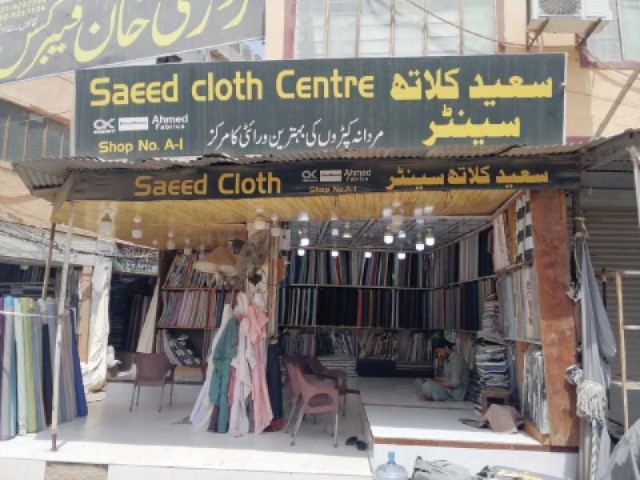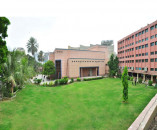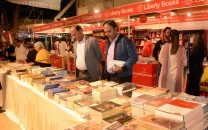Inflation hits shopping season
Men's clothing prices are on the rise, customers on the decline

It is not just food items and other basic commodities that have been hit by inflation. Even men's clothing has not been spared from the phenomenon as prices of cotton and wash and wear products have risen by Rs200 to Rs400 per suit. While prices are on the rise, the number of customers visiting shops is on the decline.
The trade of men's clothing has been in crisis for the past two years. Due to the outbreak of the coronavirus pandemic, business hours of textile markets were limited for two consecutive years.
In previous years, lockdowns and other restrictions kept locals away from markets, while this year, inflation has taken its toll on customers' buying power. As a result, shops and outlets are bereft of the usual hustle and bustle.
The major men's clothing centers in Karachi include Lasbela, Chawla Market in Nazimabad, Murshid Bazar in Saddar, Goldmark in Defence, Tariq Road, Bolton Market, Cooperative Market, Anarkali Market in Federal B. Area, Liaquatabad, Jamia Cloth Market, Rabi Centre and adjoining markets on Tariq Road as well as Samama Shopping Center in Gulistan-e-Jauhar. Apart from Pakistani fabrics, imported cotton and wash and wear fabrics are also sold.
Suits of well-known brands manufactured in Pakistan are already out of reach for the common man, while cotton suits of different brands are beyond the purchasing power of the middle class. Therefore, most of the citizens prefer to buy clothes from these centers to make new clothes for Eid prayers.
Bara markets sell paper cotton imported from China, which is suitable for hot weather and also reasonable in price. A shopkeeper at Chawla Market said the clothing business was badly affected by the lockdown and coronavirus pandemic. "Sales fell by 50 per cent in two years," he said. "Due to the increase in the price of cloth and the cost of sewing, buyers are preferring ready-to-wear outfits."
According to vendors, most of traders in the cloth market have given up their business and are renting shops due to the decline in sales. A large number of shopkeepers borrow cloth to sell and have not kept much stock in view of the trend over the last two years.
Vendors say the price of cotton suit this season has increased by Rs200 to Rs250, whereas the price of wash and wear has gone up by Rs300 to Rs400, according to quality. The price of fabric has gone up by Rs50 to Rs70 per meter. According to textile traders, 70 to 80 per cent of the population prefers to buy cotton for Eid. Mostly light-colored clothes are bought, but the a trend of wearing darker colours is emerging among the youth.
Read More: Auto sector grows despite inflation
"The best-selling colors include white, sky blue and bosky. A large number of young people are obsessed with cotton lawn with embroidery," said a shopkeeper. The purchase of clothes starts from the month of Shaban and continues till the end of Ramazan and from the first week of Shawwal after Eid holidays.
According to Faiz-ur-Rehman, a shopkeeper of Habib Cloth Market, the purchase of clothes for Eid takes place in two stages for customers. In the first stage, customers buy clothes for themselves and their families. In the second stage, clothes are purchased to be given to the deserving or as gifts.
Similarly, after Eid holidays, as soon as the bazaar opens, people start buying clothes for weddings. However, clothing sales are quite low on normal days. According to market vendors, the number of buyers of readymade garments is increasing by the day due to stitching exorbitant rates being charged by tailors.
Most tailors stop accepting clothes for sewing at the beginning of Ramazan and men buy readymade suits in the last days of the month to avoid the problem.
Citizens who shop at the textile market say that due to the declining purchasing power and rising price of cloth, the purchase sales of quality and strong Pakistani cloth are declining. Also, buyers are leaning towards imported cloth without taking its lesser quality into account.
Published in The Express Tribune, April 12th, 2022.



















COMMENTS
Comments are moderated and generally will be posted if they are on-topic and not abusive.
For more information, please see our Comments FAQ